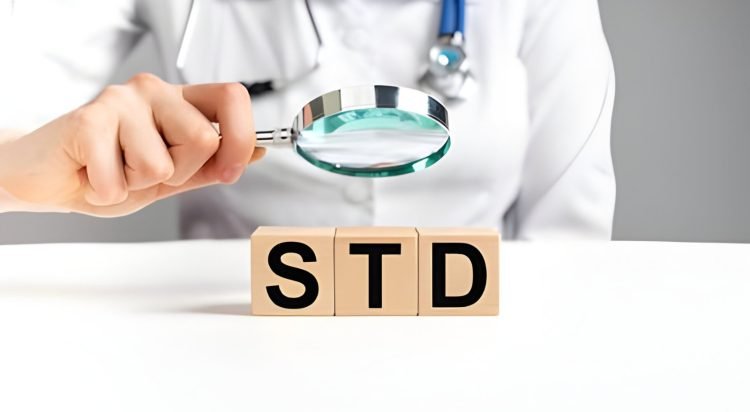Can I Contract an STD/STI Even If I’m Not Sexually Active? A Comprehensive Guide

In today’s world, particularly on social media platforms and podcasts on various platforms by so-called Gurus, there are endless discussions about the significance of sexual health. Still, there’s a common misconception that sexually transmitted diseases (STDs) or sexually transmitted infections (STIs) only affect those who are sexually active. However, the reality is far more nuanced. In this comprehensive resource guide, we’ll delve into the question: Can I contract an STD/STI even if I’m not sexually active? Or even if I’m active with just one partner!
Understanding STDs/STIs:
Sexually transmitted diseases or infections are primarily spread through sexual activity, including vaginal, anal, or oral sex. They can be caused by bacteria, viruses, or parasites, and may manifest in various symptoms or sometimes show no symptoms at all. However, what many people don’t realize is that sexual contact isn’t the only route of transmission.
Non-Sexual Routes of Transmission:
1. Vertical Transmission: STDs/STIs can be passed from mother to child during childbirth or through breastfeeding. Examples include HIV, syphilis, and herpes.
2. Skin-to-Skin Contact: Certain infections, such as genital herpes and HPV (human papillomavirus), can be transmitted through skin-to-skin contact, even without sexual intercourse.
3. Shared Personal Items: In some cases, STDs/STIs can be transmitted through the sharing of personal items like razors or towels, particularly when there are open sores or lesions present.
4. Bloodborne Transmission: Bloodborne infections like HIV and hepatitis B can be transmitted through exposure to infected blood, needles, or other contaminated equipment, such as during medical procedures or needle-sharing among intravenous drug users.
5. Medical Procedures: Certain medical procedures or practices, if not conducted with proper sterilization techniques, can potentially lead to the transmission of STDs/STIs. For instance, inadequately sterilized medical instruments used in healthcare settings for procedures such as surgical interventions, injections, or dental treatments could pose a risk of transmission for bloodborne infections like HIV or hepatitis B and C.
6. Insect Bites: Though relatively rare, there have been instances where STDs/STIs have been suggested to be transmitted through insect bites. While mosquitoes are not typically known to transmit STDs, there have been some studies suggesting the potential for transmission of pathogens like Zika virus, which can be sexually transmitted and cause symptoms similar to other STDs/STIs. However, more research is needed to confirm such transmission routes definitively.
7. Environmental Exposure: In rare cases, environmental factors such as contaminated water sources or exposure to infected bodily fluids in settings like swimming pools, hot tubs, or shared bathing facilities might pose a risk for transmission. While the likelihood of transmission through such means is low, it underscores the importance of maintaining hygiene and sanitation standards in public facilities.
8. Maternal-Fetal Transmission via Breast Milk: While vertical transmission during childbirth is well-recognized, certain STDs/STIs can also potentially be transmitted to infants through breastfeeding if the mother is infected. Though breastfeeding is generally recommended for its numerous health benefits, in cases where the mother is infected with pathogens such as HIV or syphilis, alternative feeding methods may be recommended to prevent transmission to the infant.
9. Skin Injuries or Wounds: In rare instances, STDs/STIs may be transmitted through direct contact with infected blood or bodily fluids via open wounds, cuts, or abrasions on the skin. This mode of transmission is more likely in situations where there is close contact with infected individuals, such as healthcare workers providing care to patients with STDs/STIs without adequate protective measures.
Debunking Myths around Sexually Transmitted Diseases
1. Abstinence Doesn’t Guarantee Immunity: While abstinence from sexual activity greatly reduces the risk of contracting STDs/STIs, it’s not a foolproof method. As mentioned earlier, transmission can occur through non-sexual routes.
2. Virginity Doesn’t Equal Safety: Some individuals may believe that maintaining virginity ensures protection against STDs/STIs. However, if there’s any form of sexual contact, even without penetration, there’s still a risk of transmission.
3. Innocent Activities Can Transmit Infections: Engaging in seemingly innocent activities like kissing or sharing personal items can also pose a risk, especially if one partner is unknowingly infected.
Importance of Testing for Sexually Transmitted Diseases:
Given the various routes of transmission, it’s crucial to prioritize regular STD/STI testing, regardless of sexual activity. For individuals in Dubai, accessing STD testing services is convenient, with options like STD test centers and at-home testing kits available.

STD Testing Options in Dubai:
1. STD Test Centers: Several Healthcare Centers in Dubai offer comprehensive STD testing services, including screenings for various infections. Trained professionals ensure the confidentiality and accuracy of test results.
2. At-Home STD Tests: For added convenience and privacy, individuals can opt for at-home STD tests in Dubai provided by Yad Al Amal Home Healthcare Center. This allows discreet testing with reliable results, offering peace of mind from home.
Conclusion:
In conclusion, the misconception that STDs/STIs only affect sexually active individuals overlooks the various routes of transmission. It’s essential to educate ourselves on the risks and take proactive measures, including regular testing and practicing safe behaviors. Yad Al Amal Home Healthcare Center in Dubai offers accessible and reliable at-home STD tests, empowering individuals to prioritize their sexual health and well-being.
By debunking myths and providing scientifically accurate information, we can foster a better understanding of STDs/STIs and encourage proactive measures for prevention and care. Stay informed, stay healthy.
For more information or to schedule an STD test, visit Yad Al Amal Home Healthcare Center’s website – www.yadalamal.com/ today or call us at – +971525501508. Remember, knowledge is power when it comes to sexual health.














